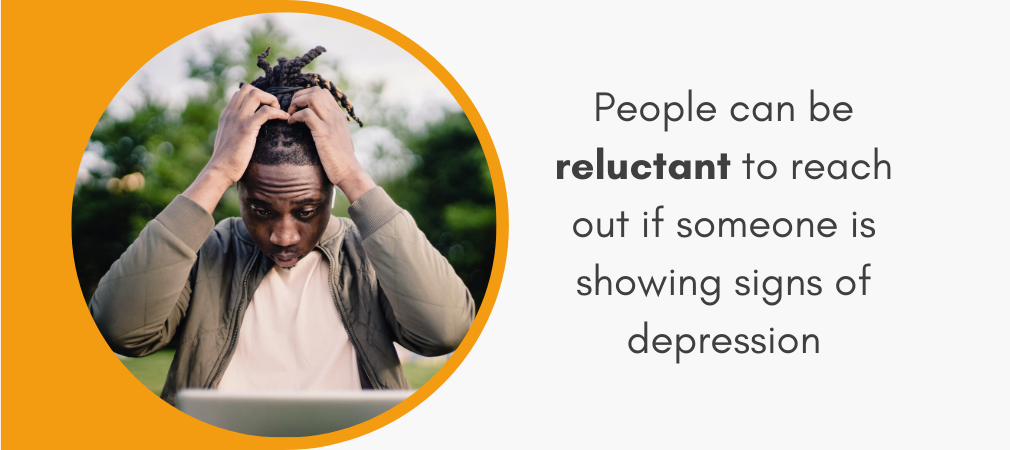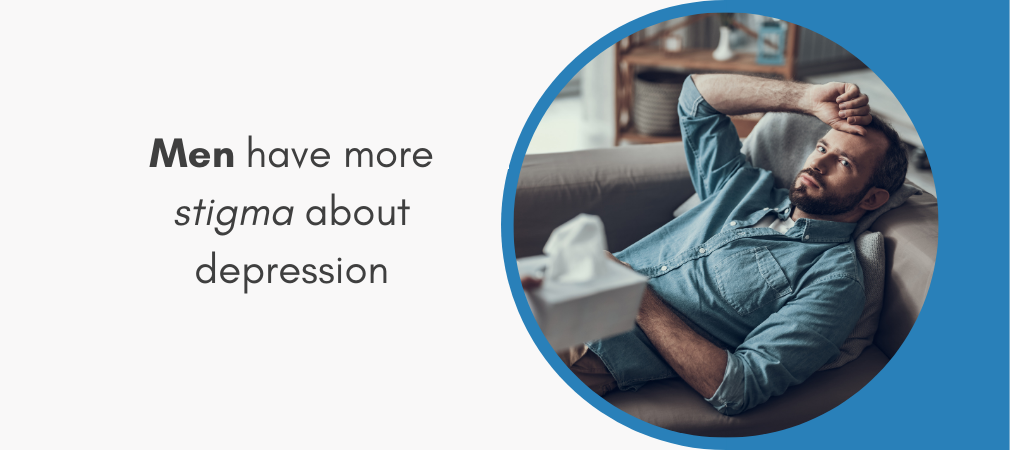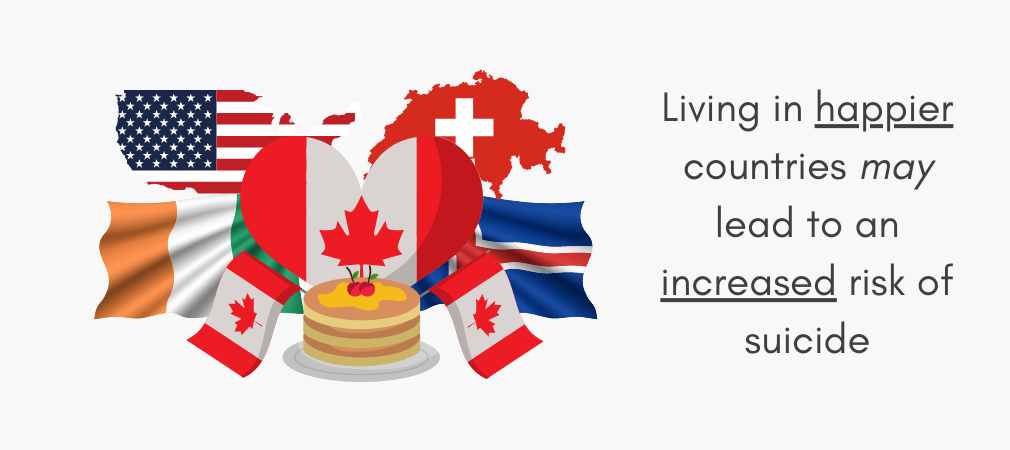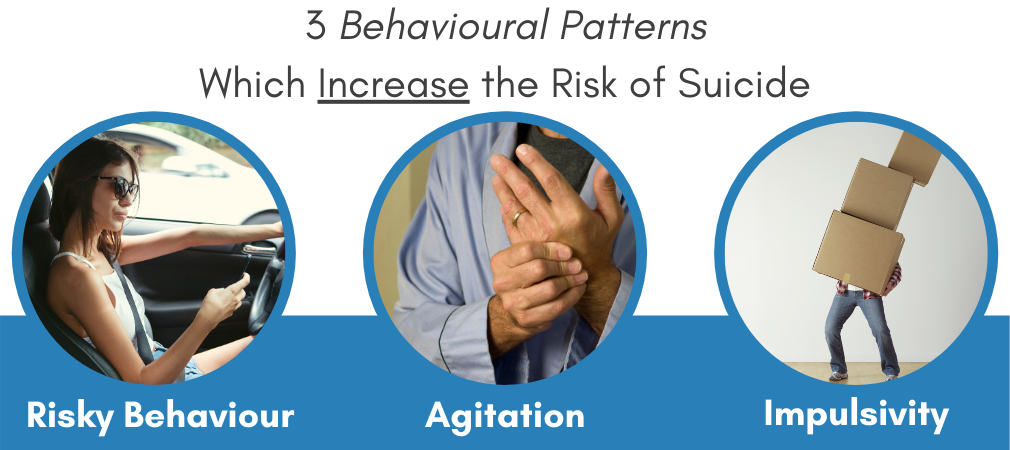3 Important Patterns To Be Aware Of To Help Prevent Suicide
As discussed at the beginning of this article, it can be challenging to identify risk factors that can lead to suicide.
Fortunately, we are continuing to learn more by continuing to research this vital area.
However, one powerful way to help prevent suicide is to reduce stigma about depression and suicidal ideation by being open to discussing mental health challenges.
Let's take a closer look at 3 important strategies to help prevent suicide.
1. Be Willing To Reach Out
Many people are often reluctant to reach out to help someone who is showing signs of depression.
Cash et al. (2019), in the journal JMIR Research Protocols, studied 33 students who reached out for help with depressive symptoms via posts on Facebook.
Of the 33 students in the study, half were either moderately or severely depressed, while one-third of the study participants were experiencing suicidal thoughts.
Results showed that when examining the study participants' Facebook friends' responses, no one suggested that they seek professional help for depression.

Now to be fair to the friends in this study, none of the students indicated they were "depressed".
This may have been due to their own stigma about struggling with depression.
So, it's important to be aware of more subtle signs of depression as the students in this study provided hints to their mood state in their posts by saying things such as having their "worst day", "feeling highly discouraged about life", or "feeling very alone".
In the study, friends generally showed support for the study participants' posts and there were some inquiries about what was wrong, but that was the extent of it.
So, it is crucial when someone presents with more subtle signs of depression that you inquire about how they are feeling and recommend they seek help if they report struggling with mood.
2. Men Have More Stigma About Depression
Stigma about mental health and depression has improved over the past few years; however, it is evident that stigma still exists to a notable degree.
For instance, according to a survey by the Canadian Medical Association, only 50% of Canadians polled would tell friends or co-workers that they have a family member with a mental health issue, while 42% of Canadians were unsure if they would socialize with a friend who has a mental health issue.
So, stigma continues to be widespread, but it appears to be worse with men, especially if they happen to be struggling with mental health issues themselves.
Oliffe et al. (2016), in the Community Mental Health Journal, conducted a study with 901 Canadian men and women who were struggling with depression.
Results showed that depressed men tend to view themselves as a disappointment and a burden to others.

This attitude is particularly concerning as the researchers also found that men are likely to be secretive about their struggles with mood for fear of being discovered, which resulted in an increase in social isolation.
As social isolation increases, it can further compound the problem with depression and increase the risk of suicide.
So, if you suspect someone is struggling with mood or appears to be isolating more than usual, I encourage you to make a point of reaching out to spend time with them or at least ask about how they are feeling.
If they are willing to confide in you about struggles with mood, encourage them to seek help from their healthcare practitioner or a mental health professional as soon as possible.
3. Be Aware Of The Happiness - Suicide Paradox
So, you're probably wondering, what is the happiness-suicide paradox?
It means that living in happier countries may lead to an increased risk of suicide.

For instance, countries like Canada, the United States, Iceland, Switzerland and Ireland have relatively high rates of happiness but disproportionately high levels of suicide.
This effect can extend to areas within a country. For example, in the United States, New York state ranks 45th out of 50 states for life satisfaction, but it has the lowest suicide rate in the country.
Of course, this effect seems peculiar on the surface.
How can someone who lives in a country or a region of a country that has low poverty, good health care, social programs, etc. contribute to a higher suicide rate?
Daly et al. (2011), in the Journal of Economic Behaviour and Organization, found that one of the primary contributors to the happiness-suicide paradox is people's tendency to judge themselves and their current life situation by comparing themselves with others.
And people typically don't make this comparison when it is favourable for them.
Instead, most people engage in what is known as "negative comparison", which is the tendency to compare yourself to someone you feel is doing better in areas of life that are important to you.
And further compounding this problem is that people often present themselves in a highly favourable manner on social media, which can further exacerbate feelings of depression for anyone struggling with negative comparison.
When someone is caught in this pattern, they may draw the erroneous conclusion that everyone else seems happy except for them, leading to stronger feelings of depression and increasing the risk of suicide.
So, it is very important to be aware of the happiness-suicide paradox and I'd like to highlight to particularly important points.
First, just because someone presents as happy, or their life situation appears positive, there is still the possibility they could be struggling with depression and suicidal ideation.
Second, it's imperative to watch for the pattern of negative comparison in others, as well as yourself, as engaging in this pattern consistently is clearly a notable risk factor for struggles with depression and suicidal ideation.
Are you surprised by some of the risk factors for depression and suicidal ideation?
Please let me know in the comments section below.
Join the conversation on Facebook!




